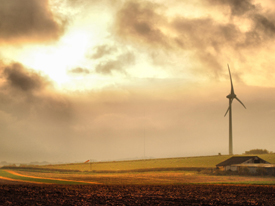 “Nobody on this planet is going to be untouched by the impacts of climate change.” Rajendra K Pachauri, chairman of the U.N. Intergovernmental Panel on Climate Change (IPCC), sounded this warning shortly after the release of its latest report, focused on climate “Impacts, Adaptation and Vulnerability.” With 2000 scientists representing 154 countries, the panel is the leading scientific body on climate change assessment. This report focused on how climate change is already hurting people, especially the poor, and what risks we will likely soon face. It also presented opportunities that are still available to global leaders to enact.
“Nobody on this planet is going to be untouched by the impacts of climate change.” Rajendra K Pachauri, chairman of the U.N. Intergovernmental Panel on Climate Change (IPCC), sounded this warning shortly after the release of its latest report, focused on climate “Impacts, Adaptation and Vulnerability.” With 2000 scientists representing 154 countries, the panel is the leading scientific body on climate change assessment. This report focused on how climate change is already hurting people, especially the poor, and what risks we will likely soon face. It also presented opportunities that are still available to global leaders to enact.
While no one is immune to climate impacts, those living in poverty are on the front lines, hit first and worst through food insecurity, displacement, health threats, and economic shocks. “Throughout the 21st century, climate change impacts are projected to…prolong existing and create new poverty traps, the latter particularly in urban areas and emerging hot spots of hunger,” says the report. Food systems are also expected to be severely jeopardized, as warming temperatures and heat waves reduce productivity. Already, wheat and maize yields have been significantly compromised, the report found. It also warned of a risk of increasing violent conflict over water, food, land, and other natural resources by exacerbating poverty and economic uncertainty.
We don’t need to look far to understand the impacts climate events can have on people’s health and livelihoods. About 500,000 acres of California cropland are expected to be left idle this year, as the state comes off of its driest year on record. The cost? Billions of dollars in economic damage, potentially thousands of jobs lost, and mounting food prices. For a family living paycheck to paycheck, the loss of a job coupled with unaffordable food costs can be devastating.
But the picture is not all bleak. Increasing our ability to adapt, rebound, and reorganize in the face of climate disruption can improve our quality of life. Some of the most significant measures we can take to become more resilient – like improving our public health, alternative transportation, and sustainable food systems – also shrink income inequality, create a more stable economy, and reduce violence, among other co-benefits. “We need to think about reducing risks and building more resilient societies,” says Chris Field, Co-Chair of the IPCC Working Group that published the report.
The Bay Area is a particularly exciting place to be when it comes to building resilience. Three of our cities – Berkeley, Oakland, and San Francisco – were recently selected by the Rockefeller Foundation for the 100 Resilient Cities Challenge. Over the next three years, these cities will receive technical support and resources for developing and implementing plans for urban resilience. As the unavoidable impacts of climate change reach everyone in the coming decades, our opportunity with the 100 Resilient Cities is to provide a buffer to those who are most vulnerable, and learn to adapt, survive and thrive together.
[Photo by Nicola Jones on Flickr]



